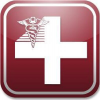What does a Midwife do?
1 Answer(s)
Top Answer
Midwives are professionally trained individuals who assist families and mothers during childbirth. There is a multitude of duties that Midwives have, but their key roles and responsibilities revolve around the preparation and the actual delivery of the infant. An expectant family will hire Midwives to deliver using their professional expertise and choose to include a physician to assist the Midwife in the process. Midwives and physicians work as a unit, but the Midwife alone will create a more personalized experience.
The roles that a Midwife will carry out will change throughout pregnancy. At the beginning of the pregnancy, Midwives will accompany mothers and families to their checkups and testing to provide their professional advice and support. Their role is to help in every way possible for the preparation of the birth.
During the actual pregnancy, a Midwife is present to provide support. It means they must translate the medical language that doctors and nurses may use, provide emotional support and encouragement, and monitor all pre and post-delivery activities. The site of practice for many Midwives includes hospitals or the homes of their clients. That preference is entirely up to the family.
Following the birth, a Midwife is there to care for the mother and child. For example, the Midwife can be a teacher in terms of breastfeeding, diaper changing, and bathing. Midwives can also follow up with the new parents and baby to ensure that everything is going smoothly and provide any advice that they may need.
Roles & Responsibilities for a Midwife
The roles that a Midwife will carry out will change throughout pregnancy. At the beginning of the pregnancy, Midwives will accompany mothers and families to their checkups and testing to provide their professional advice and support. Their role is to help in every way possible for the preparation of the birth.
During the actual pregnancy, a Midwife is present to provide support. It means they must translate the medical language that doctors and nurses may use, provide emotional support and encouragement, and monitor all pre and post-delivery activities. The site of practice for many Midwives includes hospitals or the homes of their clients. That preference is entirely up to the family.
Following the birth, a Midwife is there to care for the mother and child. For example, the Midwife can be a teacher in terms of breastfeeding, diaper changing, and bathing. Midwives can also follow up with the new parents and baby to ensure that everything is going smoothly and provide any advice that they may need.
Roles & Responsibilities for a Midwife
- Conferring with physicians and patients regarding pregnancies and their status
- Comprehending and analyzing medical tests and results
- Record keeping for patients and their test results
- Taking patients existing medical conditions and previous pregnancies, if any, into consideration
- Maintain a log or record of the childbirth process to provide later on to physicians and other healthcare specialists
- Recommending that patients seek specialized care when cases escape their experience or capabilities
- Assisting prior, during, and after the childbirth process
- Monitoring the state and conditions of the fetus by listening to its heartbeat, identifying the fetal position, measuring uterine dilatation, and estimating the size and weight of the baby
- Monitoring patients' vital signs and conditions during childbirth
- Designing personalized healthcare plans for each patient according to the type of pregnancy and existing medical conditions
- Explaining procedures to patients
- Educating parents and family members regarding postpartum and newborn care
- Child delivery and coordinating other activities for assistants and present family members
- Cutting the umbilical cord and cleaning the infant after delivery
- Checking vital signs and conditions of the newborn
- Cleaning the uterine cavity after delivery to avoid infections
- React accordingly should an emergency arise during or after childbirth
- Establishing, explaining, and following emergency procedures
- Identifying possible health hazards during childbirth and reacting accordingly
- Rushing patients to a healthcare center if an emergency escapes their capabilities or expertise
- Providing medical emergency care for newborn infants, including resuscitation, should it be necessary.
Related Jobs





